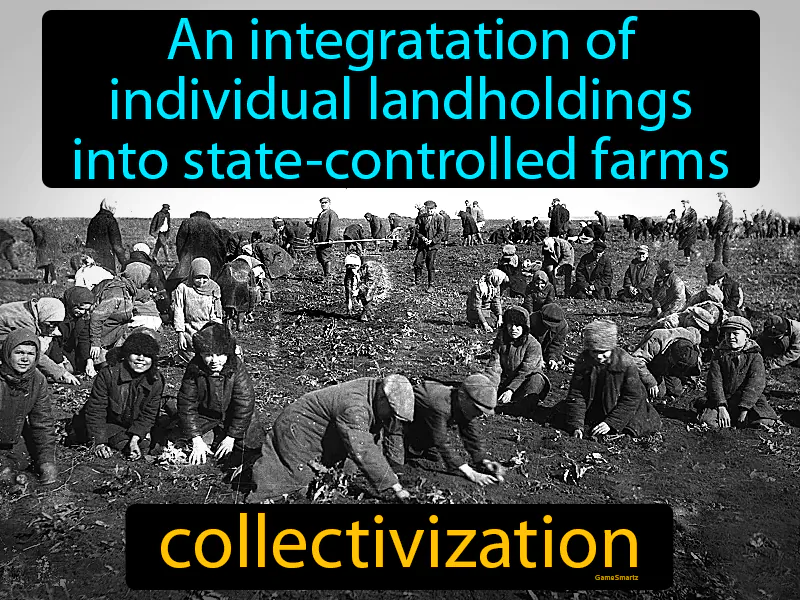Collectivization
Collectivization: Easy to understand
During the Cold War, collectivization was primarily implemented in the Soviet Union and other communist countries as a way to control agricultural production and ensure that the state had enough food to support its population. It was a response to the idea that individual ownership of farms led to inefficiencies and inequalities in food distribution. Collectivization was important because it aimed to eliminate private farming and create a system where the government managed all resources, aligning with communist principles. However, it often led to problems like food shortages and decreased motivation among farmers due to lack of personal ownership. Today, this concept connects to debates about collective versus individual ownership in various areas, like community gardens where people work together to grow food, showing both the potential benefits and challenges of shared resources.

Practice Version

Collectivization: An integration of individual landholdings into state-controlled farms. Collectivization. It was a process where the government combined small farms into large ones to control agricultural production.